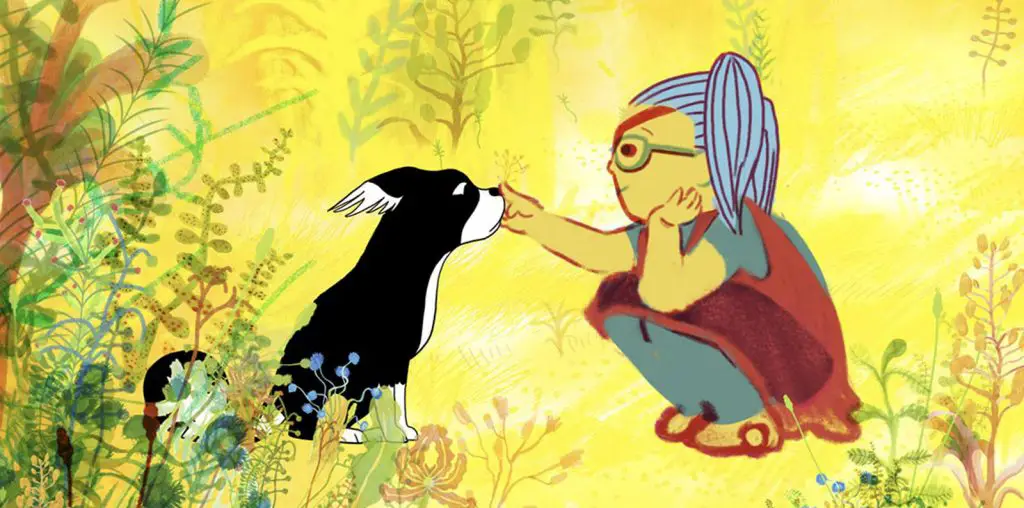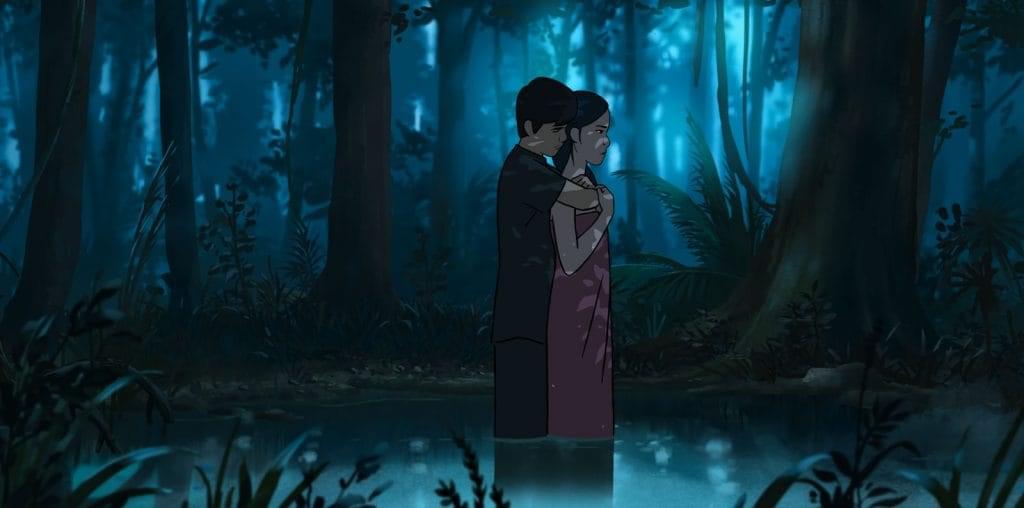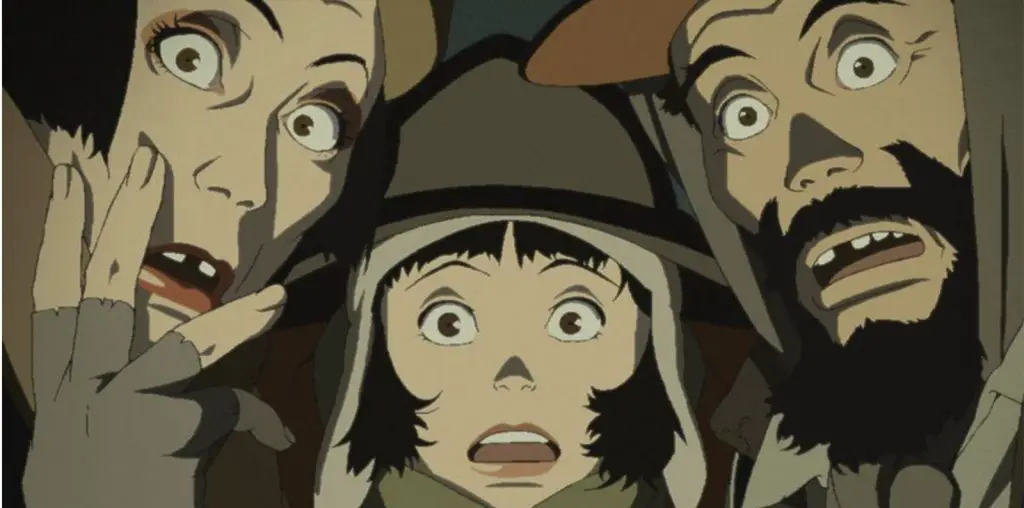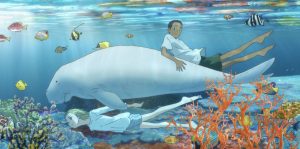
Gazing at the ocean fills me with existential musings about the universe. These gigantic bodies of water blanket the majority of our planet; a vastness the human mind simply cannot grasp. They have been here long before us and will most likely remain when we ultimately perish in an apocalypse of our own making. Gazing at the ocean makes me feel despondent and blissful, peaceful and overwhelmed. It reminds me of my own fragility, but also imbues me with strength, a subliminal connection to eternity itself.
Ayumi Watanabe’s visually astonishing Children of the Sea evokes similar sensations in me. The animated, hand-drawn (for the most part) feature doesn’t attempt to solve any grand mysteries; neither does it pound us with eco-friendly messages or polemic about global warming and pollution. By simply witnessing the grandeur of the sea, by allowing us to glimpse that symbiosis between ocean and universe, the film ends up resonating powerfully, a feast that will stimulate both the eye and the cerebral cortex.
The world is harsh to outcast teenager Ruka (Mana Ashida). She longs for the aquarium where her father works; the inviting, tranquil sea life inside those tanks beckons her. One day, while visiting her dad, Ruka encounters a young boy, Umi (Hiiro Ishibashi), who possesses the ability to turn invisible and breathe and talk underwater. Umi and his brother Sora (Seishû Uragami) were raised in the ocean by a family of dugongs (similar to manatees). Their skin is extremely sensitive to dryness, and upon discovering them, Ruka’s father decides to take care of them at the aquarium.
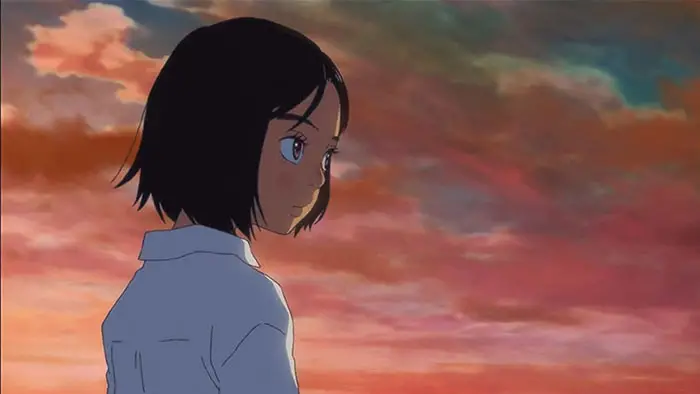
“…Ruka encounters a young boy, Umi, who possesses the ability to…breathe and talk underwater.”
As our three heroes bond, the film kicks into high gear, taking us on a kaleidoscopic marine ride, involving a giant underwater festival, deep-sea creatures getting washed up on the shores, Sora disappearing, and a shepherd of the sea escorting Ruka and Umi out into the heart of the deep, where subterranean creatures and marvels lurk. Children of the Sea‘s extended, psychedelic finale – with Ruka becoming the universe, and the ocean fusing with space – is sure to awe stoners, children, and anyone who appreciates unhinged displays of sublime, otherworldly art.
Each shot could be framed; the colors are so vibrant they leap off the screen. A breathtaking sequence early on traces Ruka as she runs through the city, and is later mirrored in a scene where she becomes one with the rain as she bikes. Dolphins migrate to the call of a wondrous song. A star crashes thunderously into the sea. Whales converse with their brethren through powerful song. Ruka swims through gargantuan, bioluminescent whale sharks. All of this beauty is complemented by Joe Hisaishi’s rousing score.
The story may falter, especially when it deviates from Ruka, Umi, and Sora. Children of the Sea could have used some trimming. But this coming-of-age visual poem is so unabashedly romantic, so steeped in wonder and love for nature, its flaws are easy to disregard. If you’re looking for an escape from our dark reality, do yourself a favor and bask in this marvelous, no-holds-barred animated odyssey.
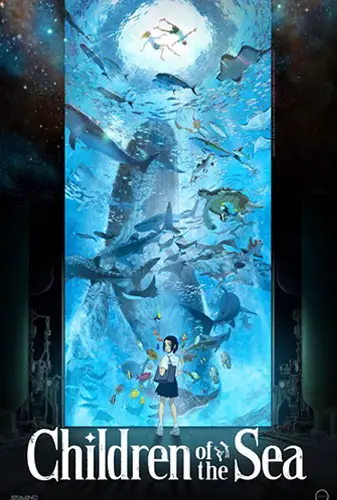
"…this coming-of-age visual poem is so unabashedly romantic, so steeped in wonder and love for nature..."
